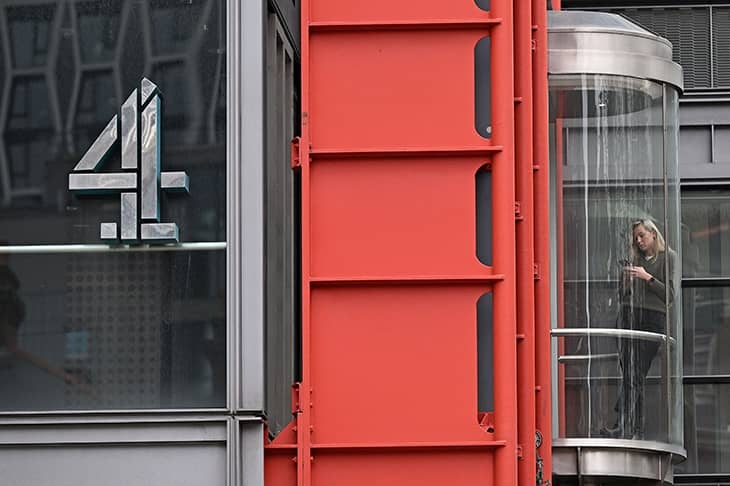Enough of stagflation forecasts, each more frightening than the last. Enough – for now – of energy policy sermons, as the government at last proclaims a serious nuclear plan. Instead, let’s have a week of real business stories, starting with tales of the old and new City.
First, a rum do at the London Metal Exchange. The Bank of England and Financial Conduct Authority are investigating the exchange’s handling, last month, of a ‘short squeeze’ on nickel, provoked by fear of disrupted supplies from Russia. The metal’s price rocketed 250 per cent in two days to trade briefly above $100,000 a ton, reportedly leaving a Chinese tycoon called Xiang ‘Big Shot’ Guangda with a short position that could have cost his Shanghai–based company Tsingshan Holdings $8 billion; one of Tsingshan’s backers was the state-owned China Construction Bank, which was allowed extra time to pay Tsingshan’s margin calls.
Meanwhile, nickel trading was suspended for a week, the first LME stoppage since 1985 – and $3.9 billion of trades done as the price spiked on 8 March were arbitrarily cancelled, leaving holders of long positions puzzled and angry. The price has since settled back to $33,000 and, we might guess, a lot of Chinese bacon has been saved. But who owns the LME these days? That would be Hong Kong Exchanges and Clearing Ltd, whose biggest shareholder is Hong Kong’s puppet government. Regulators might like to start by asking whether the episode attracted any signals from Beijing.
Name-change trauma
Next, whatever happened to Smith & Williamson? This bespoke wealth manager, well appreciated by an unflashy upper–middle-class customer base, seems to have fallen victim to the name-change trauma that (as with Standard Life and Aberdeen Asset Management, absurdly unvowelled as ‘Abrdn’) afflicts component firms in unhappy mergers. In 2019, S&W was acquired for £625 million by its private-equity-owned rival Tilney; the owners, Permira and Warburg Pincus, are now aiming for a fast-buck exit via listing or trade sale at up to £3 billion – possibly to the revived NatWest, which wants to beef up its Coutts wealth arm. Meanwhile, Tilney Smith & Williamson has bemused clients by renaming itself ‘Evelyn Partners’.
Why? ‘Partners’ looks odd for a firm that isn’t a partnership. As for ‘Evelyn’, it may be my fault as the author of a short official history of S&W. I’m guessing someone flicking through my dusty pamphlet lit upon Evelyn Gardens in South Kensington, where founder Andrew Williamson happened to live in the 1890s. Insignificant as that is for the firm (which operated in Bishopsgate and Cornhill) ‘Evelyn’ offers the 21st-century merit of being, guess what, ‘gender-neutral [reflecting] the versatility of our offering’.
What a pity they didn’t flick as far as the story of the firm’s first ultra-high-net-worth client, Jane Hall, widow of a Queensland bank manager who had taken a stake in an unpromising local mining prospect that turned out to be a hill of solid gold. As a parable of wealth creation, ‘Mount Morgan’ would make a far more auspicious name.
The business of state
Nationalisation bad, privatisation good: that’s a fair mantra not only for this column but also for the entire economic history of Britain since 1945. Yet now we see Scotrail, the north-of-the-border passenger franchise, taken back into public ownership with no murmur of objection – Dutch operator Abellio having had its contract terminated three years early – perhaps proving, for the umpteenth time, that rail was a privatisation too far: fractured, unstable, incapable of attracting sufficient investment to deliver its promises.
Then there’s Channel 4, the state-owned broadcaster whose journalists count among Tory ministers’ most articulate critics. Culture Secretary Nadine Dorries plans to privatise it and reinvest the proceeds in the creative sector. But the channel itself prefers to stay under the state’s umbrella rather than venture into full commerciality, with added capital backing, as a subsidiary of one of the US pay-TV giants who are the likeliest bidders. If that proves anything, it’s the extent to which UK governments – unlike so many elsewhere – protect the freedom of public–service broadcasting. Channel 4 makes mediocre entertainment these days, but I suspect we’d all prefer its provocative news coverage to survive.
North of the border again, a more toxic mix of politics and business. In 2015, Nicola Sturgeon awarded, against advice and (say critics) without proper transparency, a contract to build two Hebridean ferries – at £97 million, for delivery in 2018 – to Ferguson Marine, the last shipyard on the upper Clyde. But the contract went sour, Ferguson was nationalised, costs soared to £240 million – and the ferries rust half-built in the yard while two more have recently been ordered from Turkey. Should Nicola resign over the scandal? Probably. Will she? Of course not.
Dethroned
Lamentation among London diners for the fate of veteran restaurateur Jeremy King, who has lost his battle to regain control of the Corbin & King group he co-founded – with the Wolseley in Piccadilly as its flagship – to Minor International, a Thai hotel group which is paying £60 million for the 24 per cent of the business it did not already own. According to one report, King is now ‘banned from even entering any of the nine restaurants he created’. According to another, the new owner has ideas of franchising the Wolseley name to ‘emerging markets like Saudi Arabia’.
A sad outcome all round: let’s hope King finds a new throne elsewhere. My own choice among his eateries was Brasserie Zédel in Soho, which has all the theatricality of the Wolseley without the celebrity hype; but in salute to him, I’ve transferred my allegiance to Dishoom, the buzzing Bombay-style café on St Martin’s Lane.







Comments